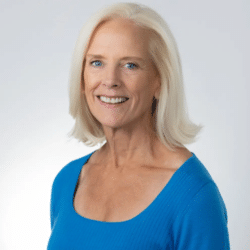Retirement often marks a significant transition in life, signaling the end of one chapter and the beginning of another. However, the decisions made in the years leading up to retirement can greatly influence your quality of life during this new phase. A recent Wall Street Journal article highlights the experiences of Stephen Kreider Yoder and his wife, Karen Kreider Yoder, as they navigate the early stages of retirement. While their journey is unique, it provides valuable insights into the importance of proactive financial planning.
Laying the Foundation for a Fulfilling Retirement
Deciding to retire often involves careful consideration of one’s aspirations and financial security. This period marks a significant transition, where you’ll learn to balance a fulfilling lifestyle in retirement while maintaining your financial well-being. You’ll also need to consider how you’ll fill your newfound free time. For example, the Yoders cultivated hobbies and interests that they knew would translate well to retired living.
Planning activities and hobbies that bring joy and fulfillment, coupled with prudent financial management, lays the groundwork for a satisfying retirement. Whether it’s pursuing passions like travel or the arts, early planning sets the stage for a retirement filled with purpose and enjoyment.
The Power of Financial Preparation
One aspect that the Yoders emphasized was the importance of making sound financial decisions early in life. However, despite their prudent financial habits, the Yoders acknowledged a misstep: waiting too long to seek the guidance of a financial planner. They realized that enlisting professional help earlier could have potentially optimized their savings, investments, and tax strategies, and provided them with greater peace of mind as they approached retirement.
In my experience, when we first meet with potential clients in their early 60’s they have already made many decisions and choices that impact their financial future. For example, paying for college for your kids while not saving enough for a secure retirement can result in needing to work longer to maintain your current lifestyle in retirement.
By partnering with a financial planner early on, individuals may gain access to tailored advice, comprehensive planning, and proactive adjustments to financial goals. This proactive approach may not only help minimize financial stress leading up to retirement but also assist in maximizing the potential for a comfortable and financially stable future.
Adapting to Changing Circumstances
Flexibility is a key element when navigating the complexities of retirement planning. While individuals may have clear goals and aspirations, life circumstances can evolve over time, necessitating adjustments to retirement plans. In the Yoders’ case, some decisions like staying in their home initially seemed beneficial; however, as time went on, they realized their preference had evolved.
A financial planner can play a crucial role in helping individuals adapt to changing life circumstances by providing guidance on revising financial strategies, reallocating investments, and addressing unforeseen challenges. Whether it’s reevaluating housing choices, reassessing investment portfolios, or adjusting retirement timelines, the expertise of a financial planner helps ensure that retirement plans remain flexible and resilient in the face of change. By embracing adaptability and seeking professional guidance, individuals can aim to confidently navigate the uncertainties of retirement and pursue a fulfilling post-career life.
Building a Path to Retirement Success
The journey to retirement is a personal and multifaceted one, influenced by a variety of factors including lifestyle preferences, financial preparedness, and adaptability to change. The experiences of the Yoders underscore the significance of how early financial planning can help shape a fulfilling retirement. By laying the groundwork for financial security and being proactive in seeking professional guidance, individuals can better position themselves for a smoother transition into this new phase of life. As the Yoders demonstrate, the decisions made earlier in life can have a profound impact on the quality of life in retirement tomorrow.


